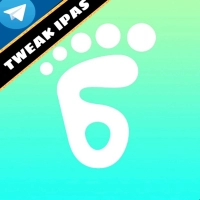Why Do People Jailbreak Their iPhones?
5 min read Understanding Jailbreaking While Apple does not support jailbreaking, the company has generally not legally threatened jailbreakers. July 19, 2024 13:25
Understanding Jailbreaking
Jailbreaking is a process that allows iPhone users to remove software restrictions imposed by Apple's iOS operating system. By jailbreaking an iPhone, users gain root access to the file system, enabling them to install applications, extensions, and other software not available through the Apple App Store. While the practice offers customization and additional functionality, it also raises concerns about security and legality.
Why Do People Jailbreak Their iPhones?
People jailbreak their iPhones for several reasons, including:
- Customization: Jailbreaking allows users to customize their device's appearance and functionality beyond what Apple permits.
- Access to Third-Party Apps: Users can install apps and tweaks that are not available on the App Store.
- Enhanced Features: Jailbreaking can unlock additional features, such as tethering and screen recording, which are restricted on non-jailbroken devices.
Is Jailbreaking Legal?
In many countries, jailbreaking is legal. For instance, in the United States, the Library of Congress has recognized jailbreaking as a legal activity under the Digital Millennium Copyright Act (DMCA). However, legality can vary by region, and it's essential to understand the laws in your specific area before proceeding with jailbreaking.
Can Apple Ban You for Jailbreaking?
Apple's stance on jailbreaking is clear: they strongly discourage it. According to Apple's End User License Agreement (EULA), jailbreaking an iPhone is a violation of the terms of service. This violation can result in several consequences, but can Apple actually ban you for jailbreaking?
Potential Consequences of Jailbreaking
While Apple does not directly ban users for jailbreaking, there are several potential consequences:
- Void Warranty: Jailbreaking voids the warranty on your device. If your iPhone requires repair, Apple may refuse to service it.
- Security Risks: Jailbreaking can expose your device to security vulnerabilities. Malicious apps and tweaks can exploit these vulnerabilities, leading to data theft or other issues.
- Software Instability: Jailbroken devices can experience software instability, including crashes, freezes, and reduced battery life.
- Loss of Access to Apple Services: Apple may disable certain services on jailbroken devices, such as Apple Pay or iCloud.
How to Protect Your Device
If you choose to jailbreak your iPhone, taking precautions is essential to minimize risks. Here are some tips to protect your device:
- Research Before Installing: Only install apps and tweaks from trusted sources.
- Use Security Software: Consider installing security software to protect against malware.
- Backup Regularly: Regularly backup your device to prevent data loss.
- Stay Informed: Keep up-to-date with the latest jailbreak news and developments.
Restoring Your iPhone
If you encounter issues with your jailbroken device, you can restore it to its original state using iTunes or Finder. Restoring your iPhone will remove the jailbreak and return it to factory settings, potentially resolving any issues caused by jailbreaking.
Conclusion
While Apple strongly discourages jailbreaking and outlines potential risks and consequences, they do not directly ban users for jailbreaking. However, it's crucial to weigh the benefits against the potential downsides before proceeding with a jailbreak. Understanding the implications can help you make an informed decision and protect your device from potential harm.
Meta Description
Learn about the potential risks and consequences of jailbreaking your iPhone, including whether Apple can ban you for doing so. Understand the legality, security concerns, and ways to protect your device if you choose to jailbreak.










 Cydia Tools
Cydia Tools Trollstore
Trollstore Jailbreak
Jailbreak iOS Widgets
iOS Widgets WordPress Plugin
WordPress Plugin